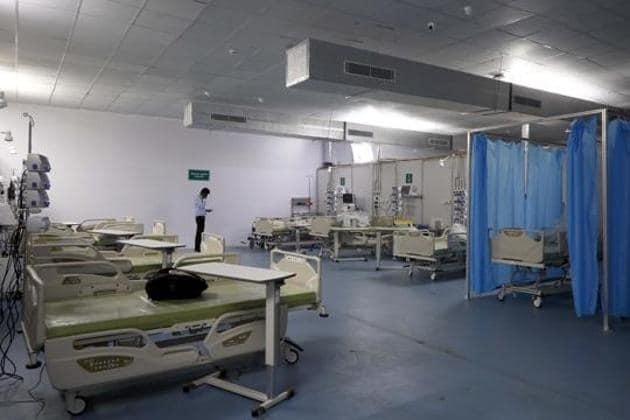Control room to allot only 80% Govt rate beds in pvt hospitals: HC
| Date :06-May-2021 |

Staff Reporter :
HC constitutes 3-member Grievance Committee headed by former HC Judge M N Gilani, consisting of ex-HC judge M G Giratkar, Civil Surgeon Dr Paturkar
The Central Control Room (CCR) set up by Municipal Commissioner and District Collector has created a central pool of hospital beds to the extent of 80 per cent beds of each of the dedicated COVID hospitals and will not cover remaining 20 per cent beds, clarified High Court while asking the authorities to issue a corrigendum. After CCR was set up, it was perceived that no bed can be allotted by any of the private hospitals on its own. Removing this misconception, a division bench consisting of Justice Sunil Shukre and Justice Avinash Gharote made it clear that no bed in any hospital including private hospital, was requisitioned, but CCR would act as a helpline to admit COVID-19 patients in 80 per cent of the beds in different hospitals and distribution of drugs and COVID-19 essentials.
The High Court also noted that CCR order did not clarify the issue of payment of charges of the hospitals as per approved rates for treatment of COVID-19 patients. Bhanudas Kulkarni, Indian Medical Association (IMA) Counsel, pointed out another lacuna in the order warning criminal action against refusal to admit critical patients, There could be cases where the patients are critical and are recommended admission and treatment in a particular hospital, which does not have necessary means and infrastructural facilities such as vacant oxygenated beds or ventilators. The High Court noted that such criminal prosecution was not contemplated by May 4 order.
“It’s not the intention that it is compulsory for every Dedicated COVID Hospital (DCH) to admit a critical or very critical COVID patient even when it does not have an oxygenated or ventilated bed,” the High Court clarified while asking authorities to issue a comprehensive corrigendum. A particular DCH would admit the patient on the recommendations of CCR but if any DCH did not have the means and infrastructural facilities for admitting a particular patient, such DCH should immediately inform the CCR and request it to divert the patient to some different hospital, and CCR would make an endeavour to recommend bed in appropriate DCH for such patient, the High Court suggested. About criminal prosecution, the High Court, as a safeguard, constituted a three-member independent Grievance Committee headed by former High Court Judge M N Gilani and consisting of ex-High Court judge M G Giratkar, and Civil Surgeon Dr Paturkar. Sub-Divisional Officer (Nagpur) Shekhar Ghadge will be Member Secretary of the committee. Such power, needless to say, must be used sparingly and only when it is extremely necessary; else, there is a possibility of it proving counter productive, the High Court warned.
The High Court directed that no criminal action shall be taken without first seeking approval of the Grievance Committee and complaints regarding payment/non-payment of the charges of any hospital, shall be referred to the Grievance Committee first. Only after these complaints are examined by the committee, and if necessary, after asking the hospital concerned to place before it all the details of the treatment given, take its decision. About contingency of patients admitted through CCR not paying the bills of DCH as per approved rates, the High Court stated that expense incurred by the DCH on account of treatment given to such patient, when unpaid, would have to be reimbursed by the State or Nagpur Municipal Corporation from out of COVID-19 funds to that hospital. Later, the sum can be recovered by the State, from the patient, if that is permissible under the policy.